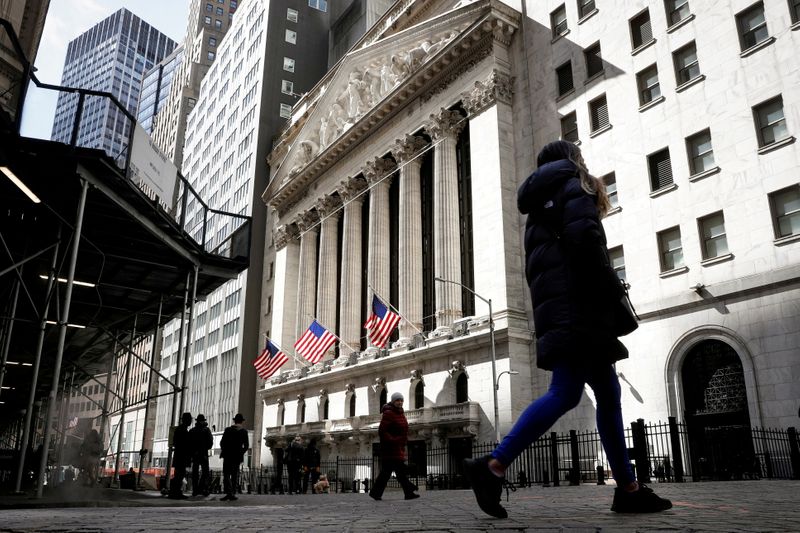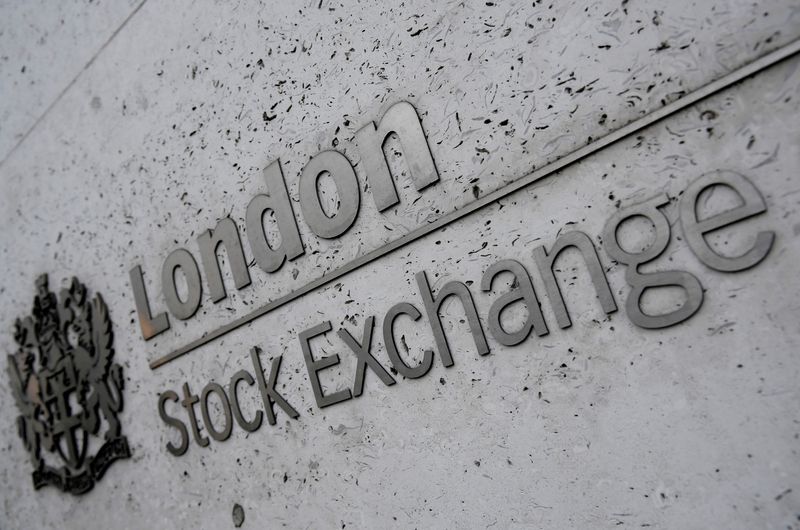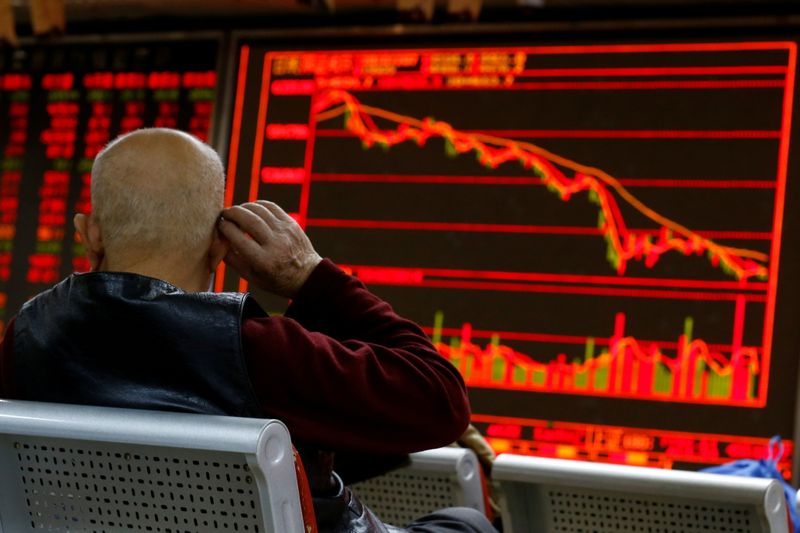WASHINGTON/LONDON (Reuters) -Wall Street rebounded on Monday and global stocks rose from a four-week low as investors banked on economic growth, while the U.S. dollar sank from Friday’s 10-week high, boosting oil prices.
Yields on 10-year Treasuries reversed earlier losses after sliding to a four-month low of 1.354%. The benchmark note was still trading well below its recent mid-point range of about 1.6% after traders reacted to Federal Reserve expectations for a rate hike.
Shares of banks, energy firms and other companies that tend to be sensitive to the economy’s fluctuations recovered after having fallen sharply since the Fed’s meeting on Wednesday, when the central bank caught investors off guard by anticipating two quarter-percentage-point rate increases in 2023.
The Dow Jones Industrial Average surged, recovering from Friday’s rout as it notching its strongest session in over three months to end 1.76% higher. The S&P 500 jumped 1.40% and the Nasdaq Composite rose 0.79%. [.N]
“Inflation is not running out of control and in fact we think economic growth will come in better than expected,” said Monica DiCenso, global investment specialist at J.P. Morgan Private Bank.
“If so, this suggests that equity multiples could be lower than people think and therefore we shouldn’t be scared about even adding to equities at these levels both in the United States and overseas.”
The pan-European STOXX 600 index rose 0.70% and MSCI’s All Country World Index was up 0.72%, recovering some of Friday’s losses after touching its lowest since May 24 earlier in the session.
Emerging market stocks lost 0.79%.
Earlier in the session, Asia shares were under pressure. Japan’s Nikkei led the declines with an over 3% drop, dipping below 28,000 for the first time in a month. MSCI’s broadest index of Asia-Pacific shares outside Japan fell 1%.
While last week’s Fed meeting took the focus, the message from G-7 leaders warranted investor attention, said Christopher Smart, chief global strategist at Barings Investment Institute.
“The consensus at the G-7 leaders meeting (was) the world’s richest economies will continue to spend, spend, spend on renewing infrastructure, on redressing inequality and on fighting climate change,” Smart said.
The early debate over how the Federal Reserve could begin to withdraw some of its massive support for the economy was on display on Monday when two U.S. central bank officials discussed how the playbook used after the 2007-2009 recession may not apply this time.
The U.S. dollar index fell 0.427%, off Friday’s high of 92.408, as investors weighed whether the Fed’s stance will mean a pause in the greenback’s bear trend.
Several Fed officials have speaking duties this week, including Chair Jerome Powell, who testifies before Congress on Tuesday. European Central Bank President Christine Lagarde speaks before the European Parliament on Monday.
“We believe there is a limit to how much more hawkish the Fed can be given its inflation projections relative to the catch-up rates range,” BlackRock analysts said in a note.
“Our bottom line: We believe the Fed’s new outlook will not translate into significantly higher policy rates any time soon.”
The euro rose 0.47%.
Sterling recovered some ground, to trade up 1% after sliding to its lowest since April 16. [GBP/]
A stronger dollar has pressured cryptocurrencies, with bitcoin falling over 8.11%, while smaller rival ether lost 13.11%.
Forecasts for Brazilian growth, inflation and interest rates in 2021 rose to new highs, a survey of economists showed on Monday, following the central bank’s third rate hike last week.
In commodities, crude oil rose amid a pause in talks to end U.S. sanctions on Iranian crude and a weaker dollar. Declines in the greenback’s value make dollar-traded commodities less expensive to holders of other currencies. [O/R]
Brent crude futures traded at $74.89, up 1.88% on the day, as U.S. crude rose 2.65% to $73.54.
Spot gold added 1.1% to trade at $1,782.80 an ounce, looking to snap a six-day losing streak, even as prices remained near their lowest since early May.
Copper steadied on Monday, up from its lowest level since mid-April, after moves by China to rein in commodities price rallies and the hawkish signals from the Fed. [MET/L]
(Reporting by Chris Prentice in Washington and Ritvik Carvalho in LondonAdditional reporting by Kevin Buckland in Tokyo and Herb Lash in New YorkEditing by Angus MacSwan and Sonya Hepinstall)


























